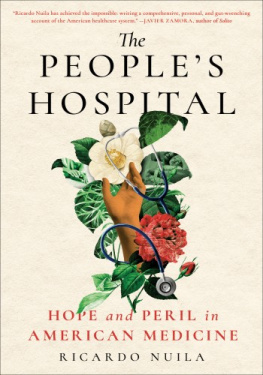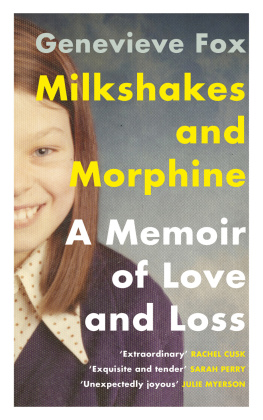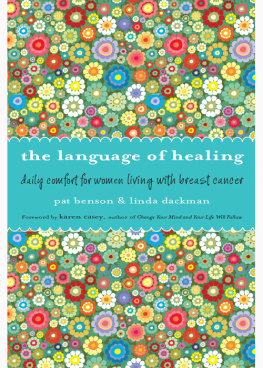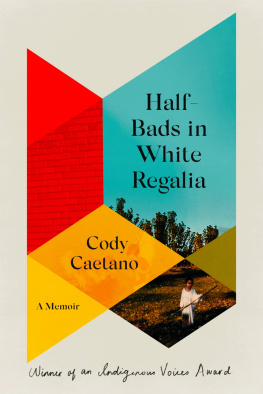[sic]
JOSHUA CODY

First published in Great Britain 2011
This electronic edition published in October 2011 by Bloomsbury Publishing Plc
Copyright 2011 by Joshua Cody
The moral right of the author has been asserted
All rights reserved You may not copy, distribute, transmit, reproduce or otherwise make available this publication (or any part of it) in any form, or by any means (including without limitation electronic, digital, optical, mechanical, photocopying, printing, recording or otherwise), without the prior written permission of the publisher. Any person who does any unauthorised act in relation to this publication may be liable to criminal prosecution and civil claims for damages
No part of this book may be used or reproduced in any manner whatsoever without written permission from the Publisher except in the case of brief quotations embodied in critical articles or reviews
Every reasonable effort has been made to trace copyright holders of material reproduced in this book, but if any have been inadvertently overlooked the publishers would be glad to hear from them.
Bloomsbury Publishing Plc
50 Bedford Square
London WC1B 3DP
www.bloomsbury.com
Bloomsbury Publishing, London, New Delhi, New York and Sydney.
A CIP catalogue record for this book is available from the British Library
eISBN: 978 1 4088 2118 3 (ebook)
Visit www.bloomsbury.com to find out more about our authors and their books You will find extracts, author interviews, author events and you can sign up for newsletters to be the first to hear about our latest releases and special offers
Contents
The text that follows is a memoir. With the exception of members of my immediate family, I have altered the names and scenarios of all persons figured herein in order to preserve their privacy. Thank you for your understanding. We will now return to the program.
I
The Divine Proportion
There is no excellent beauty that hath not some strangeness in the proportion.
Francis Bacon, Of Beauty
Twelve sessions, one every two weeks; but you have no idea what this means, really, I mean how could you, and neither does anyone else, so everybodys at a loss for words; and its ironically reminiscent of those lead greyladen, amaranthine after-school afternoons of childhood, on the dusty playground, class is out but its still too early to go home, so you wait with the others, and theres no need to speak and theres the sense of communion. The big difference is that now, here, there is, palpably, the need to speak. Thing is nobody can. The unspoken words, ultimately, are Whats it going to be like? And thatd be a funny question even if somebody could voice it: not what is it going to be, but what is it going to be like? But anyway nobody says it out loud, so what can you do but ignore the odors and peruse the list of side effects, around eighty per drug, ordered into three categories, common side effects, uncommon side effects, rare side effects. (Death was inevitably included, and was inevitably rare.) They hand this information to you on orange pamphlets, professionally printed, the Garamond font levelheaded, direct but never alarming, confidential, appropriate; poised; the thickness of the paper just right, more consequential than flimsy copy stock, but a good long way from cardboard, which would be terrifyingly permanent. The care that takes, the thought that goes into it: all the parameters are really masterfully designed, as if the hospital had hired a PhD in semiotics from Brown. The rhetoric. Youre dealing with a balance not easy to achieve. One of my favorite devices was what screenwriters call the plant: You may notice... It was always answered by the payoff... this is temporary. You may notice x; this is temporary. (Well, not in the case of death. They never write, You may notice death; this is not temporary. Thats understood.) I read these pamphlets over and over, like a mantra; theyre trying to normalize the experience, to throw the patient back into civilization, which is where the patient was, at some point in the pastthe patient realizes this, remembers being there, what it was like: what it felt like, how things tasted differently, how different kinds of fabric smelled differently, how even the air smelled differently, somehow: how watching a football game then was so different from watching one now; how different the meanings of things were theneven the meanings of things as simple as water, or taxonomy, or, indeed, what it means to mean. Once, the patient was a child wondrous at the mysterious fact, just learned, that some people are left-handed and some arent: dividing humanity in two like that: the child wondered why he was one, not the other. Or once, it was nighttime, and the patient was a child sitting in an airport, pretending to read a magazine but in fact watching the airplanes taxi through the tarmac, flush with anticipation of his first flight. Or, for that matter, once, the patient was a child realizing that music, and for that matter sound, and for that matter whats the difference, anyway, isnt in fact immaterial, but rather the eminently material slapping of air molecules against the tympanum in the ear, thereby rendering it the only of our arts that actually involves physical contact. Or once, the patient was standing on a playground. But now the patientstanding between those pamphlets and the unknown experience that beckons, the future to which the pamphlets pointis standing somewhere very high, a vantage point from which civilization is visible, but muted, condensed into a grey mass. I thought of Philippe Petit on that taut tightrope between the Twin Towers. They tell you, for example, how long the infusion lasts: about fifty minutes. Not that experiencing those fifty minutes for the first time will be remotely like any previous experience of fifty minutes. I wanted to know the kind of chair I was going to sit in, what color? Stripes? Canvas, or plastic? What temperature would the room be? Chilly, like David Lettermans studio? Or warm, like a pub in London? Can you (are you supposed to) listen to music, are you expected to carry on a conversation with the nurse? Whats the etiquette? Are you alone, doing chemo, in a room, an enclosed space? Are there people around?
You turn around and the question is answered: it turns out there are people aroundat least there were for me, I dont know how itll be for you (because you must remember that youll go through it too, almost certainly: its part of life in the twenty-first century). A large open room painted in rather ghastly shades of orange. At least a dozen patients at any given time. The sheer number of people was startling. Pleasant conversation between nurses and patients, as it turned out: the ambiance is that of an airport gate, or people on the subway, or what I imagine a nail salon must be like. At first I took the complacent cheeriness as an effort on the part of the staff to mask the dread, but after a few sessions I discovered there was in fact no artifice here, nothing feigned: that it was, for them, about as earth-shattering as a trip to the dry cleaners, another chore on the list.
The extras were suspiciously well cast, suspiciously well represented in a socioeconomic sort of way: the pinkfaced, heavyset businessman (he might as well have a highball in his fifty-nine-year-old hand); the good-looking woman wearing jeans and a nice pair of sandals, doubtless with literary ambitions; the gay man chatting loudly on his cell phone about Italian wines; the black woman in a jogging suit, with her patient husband; the Korean girl, looking spiffy in Ann Taylor, typing on her laptop. And I never saw the same person twice. These are the twenty-first centurys faces of death? Pleasant. And yet there was something exceedingly grotesque about it all, as if everyone were sitting around (I hesitate to use this image, but it did come to mind repeatedly) defecating while making affable conversation. (When I was in grade school, fifth grade I think, I read about an African tribe whose members thought nothing of defecating in public but would rather be caught dead than found eating. I think that was my first introduction to cultural relativism. On an unrelated note, I dont view art as excretory.) Chemo can be infused with a simple IV to a vein in the arm, or, as in my case, they can implant a small catheter port, a small silicone disc, into the chest, which leads directly to the jugular vein. I always felt a surge of adrenaline as the nurse pierced my chest with the needle, and the energy never really subsided but melted into the effects of the steroids, the first of four bags of liquid. The steroids do much to mask the effects of the other drugs; Id be charged up for about forty-eight hours.












